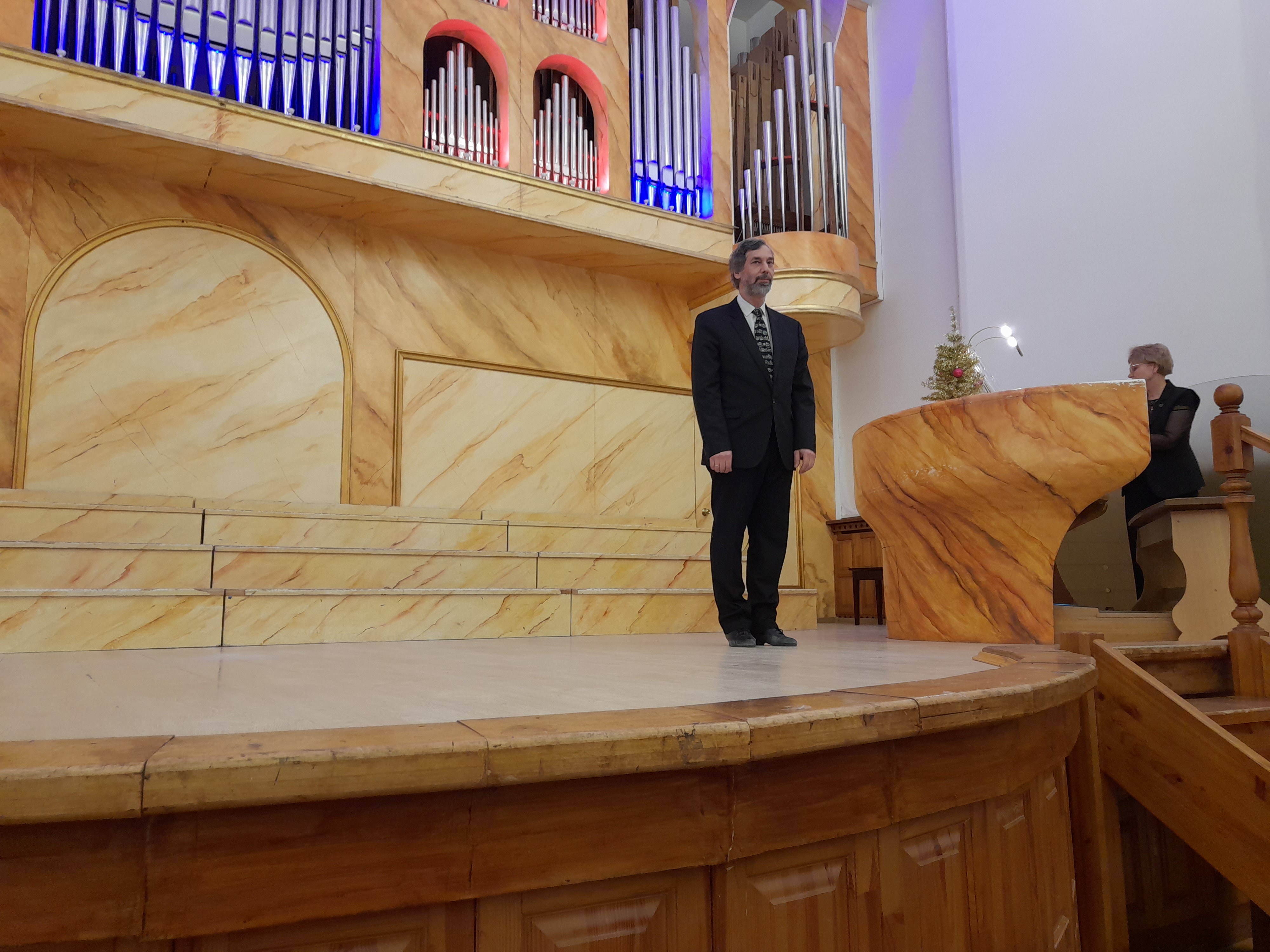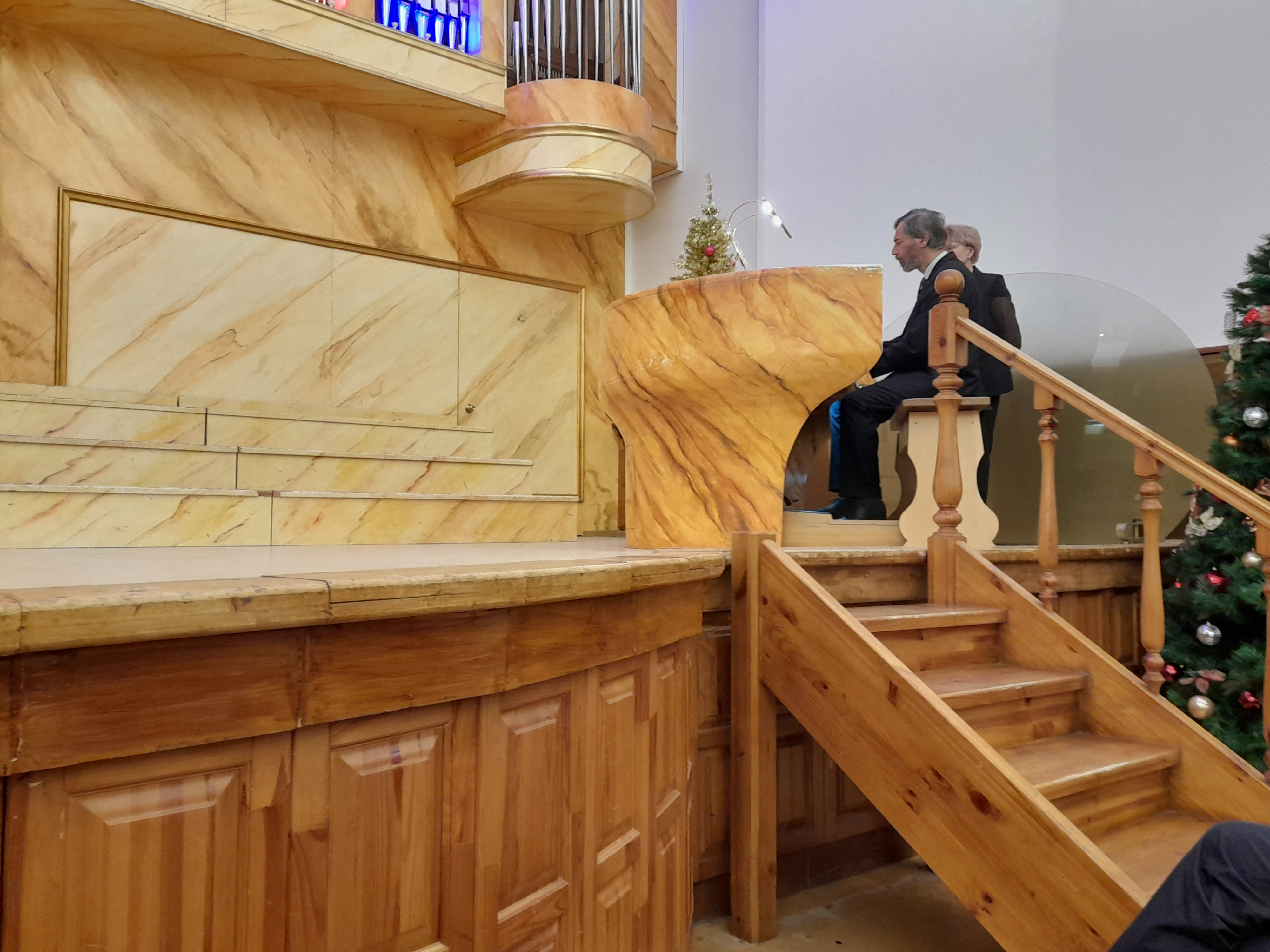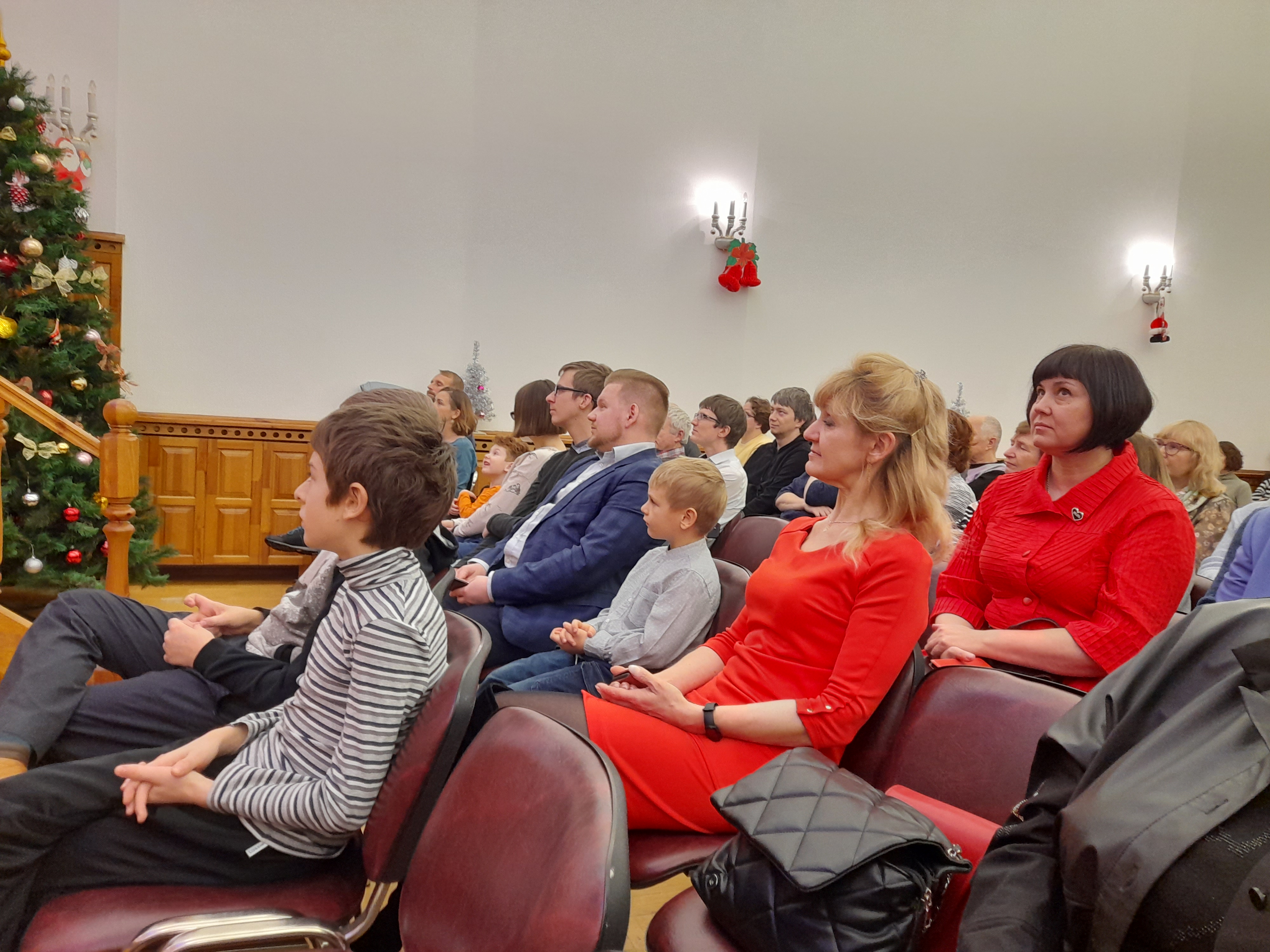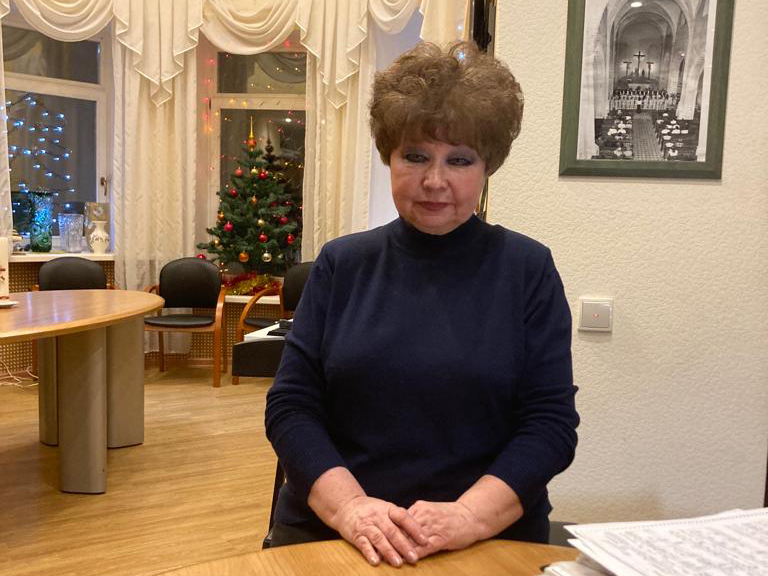JINR supported city musical holiday
News, 27 December 2022
On 23 December, a Christmas organ concert “Bach and the Music of Paris Cathedrals”, supported by the Joint Institute for Nuclear Research, took place at the Choir School for Boys and Young Men. The concert showed that even in turbulent times, cultural life continues.
The concert programme included fantasias, toccatas, preludes, and fugues by Johann Sebastian Bach and music from organ symphonies by composers of the Paris school of the late XIX – early XX centuries. Famous musician, Honoured Artist of Russia, laureate of international competitions, and the Organist of the Year award, Professor of the Organ, Harpsichord, and Carillon Department of St. Petersburg University Daniel Zaretsky performed classical works.
In one of his interviews, Daniel Zaretsky, who performed already for the second time in the city of physicists Dubna, said that a sociological survey was conducted at the St. Petersburg Philharmonia about twenty years ago. According to its results, among music lovers, regular visitors to organ concerts, not lyricists prevail, as one might expect, but physicists, mathematicians, and architects.
“It’s nice when a number of people who are interested in organ music is so wide,” the maestro said, commenting on the current performance. “The organ is a very orderly instrument compared to others. Playing the violin, piano, you can adjust the volume of the sound, but the organ is more objective, and the property of its sound is that it can be eternal. As long as you hold the key, the organ sounds. This does not happen with the piano or violin, where the sound gradually fades away. And the organ is the voice of eternity…”.
Dubna organ is a full-sized 30-register German instrument with more than 1800 pipes in its composition, which has been pleasing listeners for nineteen years.
“There are two complete manuals in our organ, that is, keyboards, and we have completed the third manual, which has unusual registers. All performers like this instrument, they like Dubna, and they really like the listener in our city,” Director of CSBYM Dubna, Honoured Worker of Culture of the Russian Federation Olga Mironova said. She said that the idea of holding Christmas concerts originated with the opening of the organ in 2004, when traditional concerts for the Day of the Dubna city and New Year’s Eve began to be held. In total, Dubna hosts about four organ concerts a year.
For the Choir School for Boys and Young Men Dubna, as well as for JINR, the idea of international cooperation is very close. In different years, in addition to Russian performers from Moscow, St. Petersburg, Chelyabinsk, Kaliningrad, organists from Holland, Germany, Italy, USA, France came to the choir school, and international competitions were held there. “We wanted to get acquainted with the culture of organ masters from each country. It’s very interesting for me as a musician,” Olga Mironova said. In February, at the next organ concert, the famous Dutch organist Jean-Pierre Steijvers will perform in the science city. As for the school itself, the Choir Capella fpr Boys and Young Men performed on 10 December at the invitation of the German Ambassador to Russia at the Cathedral of Saints Peter and Paul. On 4 January, the concert choir of the school will perform at the Roman Catholic Cathedral of the Immaculate Conception of the Blessed Virgin Mary in Moscow.
The audience shared their impressions of the concert, many of whom came to enjoy the sound of this musical instrument not for the first time.
Junior researcher of the Laboratory of Neutron Physics JINR Omari Chaligava and his wife got a lot of impressions at the concert, “We really enjoyed the concert! Emotions are difficult to describe in words. When you close your eyes and listen to this multifaceted sound, you can hardly imagine that only one person plays it! Each organ is unique, and probably only true professionals in their field can merge with the instrument and deeply amaze with a magnificent sound.”
Listeners Tatiana Syrovatskaya and Tatiana Efremova, “It’s praiseworthy that only one person creates such grandiose music on a gorgeous instrument. The organist fills the whole hall, like a whole symphony orchestra, and the power of this music, the instrument is marvellous.”



